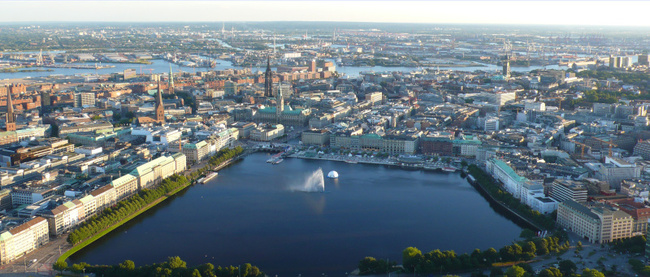Practical Information

Hamburg, officially Freie und Hansestadt Hamburg (Free and Hanseatic City of Hamburg), is the second largest city in Germany and the eighth largest city in the European Union. It is the second smallest German state by area. Its population is over 1.7 million people, and the wider Hamburg Metropolitan Region covers more than 5.1 million inhabitants. The city is situated on the river Elbe.
The official long name reflects Hamburg's history as a member of the medieval Hanseatic League, a free imperial city of the Holy Roman Empire, a city-state, and one of the 16 states of Germany. Before the 1871 Unification of Germany, it was a fully sovereign state. Prior to the constitutional changes in 1919, the civic republic was ruled by a class of hereditary grand burghers or Hanseaten. Though repeatedly destroyed by the Great Fire of Hamburg, the floods and military conflicts including WW2 bombing raids, the city managed to recover and emerge wealthier after each catastrophe.
On the river Elbe, Hamburg is a major port and a global service, media, logistics and industrial hub, with headquarters and facilities of Airbus, Blohm + Voss, Aurubis, Beiersdorf and Unilever. The radio and television broadcaster NDR, Europe's largest printing and publishing firm Gruner + Jahr and Spiegel are also based in Hamburg. Hamburg has been an important financial centre for centuries, and is the seat of Germany's oldest stock exchange and the world's second oldest bank, Berenberg Bank. With the International Tribunal for the Law of the Sea, the EU-LAC Foundation, the UNESCO Institute of Lifelong Learning, many consular and diplomatic missions and various international conferences like Hamburg Summit: China meets Europe and the 2017 G20 Hamburg summit, the city is also a factor in world politics and international law.
Visit the City website: http://www.hamburg.com/


